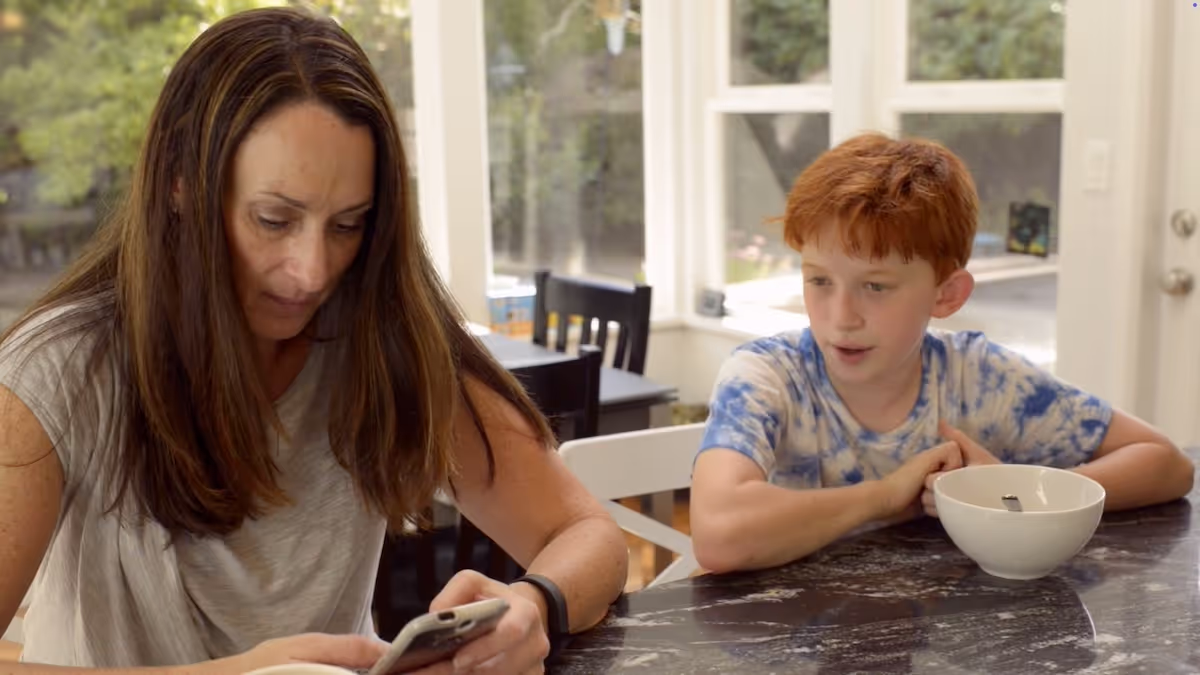


As a doctor, I believe that while there is a true clinical internet/video game addiction, we must be careful about using the term addiction loosely. I explain here in this recent Washington Post article:
"For serious cases, she agrees that Internet addiction is a real problem. But for the kid who just won’t put her phone down during dinner? Calling her an addict may do more harm than good.
“We should be careful to stop using the word ‘addiction’ so kids can have an internal sense of control,” she said. “They have to know that the device does not control them.”
A new report from Common Sense Media titled “Technology Addiction: Concern, Controversy, and Finding Balance” points to the potential controversy of taking an addiction view of everyday technology use. The key is to find balance both in our perspective on technology use and our actual use of it.
The Common Sense report includes results of a poll of 1200 teens and parents on their feelings, use and response to their mobile devices. Much of the poll’s results echo what we found from our work on SCREENAGERS, namely that both teens and parents recognize the strong pull of technology in their daily lives. In the results of the poll, one of every two teens reported they “feel” addicted to their mobile devices and 60 percent of parents “feel” their teens are addicted.
As I noted above, the parents and teens connection of the term addiction with their feelings about their device use is not grounded in the clinical definition of addiction as it pertains to Internet Gaming Disorder, or IGD. I touch on some of the specifics of IGD in SCREENAGERS.
These themes of distraction, conflict, behavior and compulsion also run throughout SCREENAGERS interviews of teens, parents and experts. Interestingly, some of the solutions to these issues come from teens themselves. One group of boys puts all devices in a pile on the center of the table whenever the get together so that they stay focused on each other instead of their phones. This self-awareness, which also comes through in the poll, speaks well to the emotional intelligence of the SCREENAGERS generation. At the same time that they feel drawn in by their devices, they are also seeking ways to disconnect from them.
Learn more about showing our movies in your school or community!
Join Screenagers filmmaker Delaney Ruston MD for our latest Podcast

Learn more about our Screen-Free Sleep campaign at the website!
Our movie made for parents and educators of younger kids
Learn more about showing our movies in your school or community!
Learn more about showing our movies in your school or community!
Join Screenagers filmmaker Delaney Ruston MD for our latest Podcast

Learn more about our Screen-Free Sleep campaign at the website!
Our movie made for parents and educators of younger kids
Join Screenagers filmmaker Delaney Ruston MD for our latest Podcast
As we’re about to celebrate 10 years of Screenagers, we want to hear what’s been most helpful and what you’d like to see next.
Please click here to share your thoughts with us in our community survey. It only takes 5–10 minutes, and everyone who completes it will be entered to win one of five $50 Amazon vouchers.
As a doctor, I believe that while there is a true clinical internet/video game addiction, we must be careful about using the term addiction loosely. I explain here in this recent Washington Post article:
"For serious cases, she agrees that Internet addiction is a real problem. But for the kid who just won’t put her phone down during dinner? Calling her an addict may do more harm than good.
“We should be careful to stop using the word ‘addiction’ so kids can have an internal sense of control,” she said. “They have to know that the device does not control them.”
A new report from Common Sense Media titled “Technology Addiction: Concern, Controversy, and Finding Balance” points to the potential controversy of taking an addiction view of everyday technology use. The key is to find balance both in our perspective on technology use and our actual use of it.
The Common Sense report includes results of a poll of 1200 teens and parents on their feelings, use and response to their mobile devices. Much of the poll’s results echo what we found from our work on SCREENAGERS, namely that both teens and parents recognize the strong pull of technology in their daily lives. In the results of the poll, one of every two teens reported they “feel” addicted to their mobile devices and 60 percent of parents “feel” their teens are addicted.
As I noted above, the parents and teens connection of the term addiction with their feelings about their device use is not grounded in the clinical definition of addiction as it pertains to Internet Gaming Disorder, or IGD. I touch on some of the specifics of IGD in SCREENAGERS.
These themes of distraction, conflict, behavior and compulsion also run throughout SCREENAGERS interviews of teens, parents and experts. Interestingly, some of the solutions to these issues come from teens themselves. One group of boys puts all devices in a pile on the center of the table whenever the get together so that they stay focused on each other instead of their phones. This self-awareness, which also comes through in the poll, speaks well to the emotional intelligence of the SCREENAGERS generation. At the same time that they feel drawn in by their devices, they are also seeking ways to disconnect from them.
Sign up here to receive the weekly Tech Talk Tuesdays newsletter from Screenagers filmmaker Delaney Ruston MD.
We respect your privacy.
As a doctor, I believe that while there is a true clinical internet/video game addiction, we must be careful about using the term addiction loosely. I explain here in this recent Washington Post article:
"For serious cases, she agrees that Internet addiction is a real problem. But for the kid who just won’t put her phone down during dinner? Calling her an addict may do more harm than good.
“We should be careful to stop using the word ‘addiction’ so kids can have an internal sense of control,” she said. “They have to know that the device does not control them.”
A new report from Common Sense Media titled “Technology Addiction: Concern, Controversy, and Finding Balance” points to the potential controversy of taking an addiction view of everyday technology use. The key is to find balance both in our perspective on technology use and our actual use of it.
The Common Sense report includes results of a poll of 1200 teens and parents on their feelings, use and response to their mobile devices. Much of the poll’s results echo what we found from our work on SCREENAGERS, namely that both teens and parents recognize the strong pull of technology in their daily lives. In the results of the poll, one of every two teens reported they “feel” addicted to their mobile devices and 60 percent of parents “feel” their teens are addicted.
As I noted above, the parents and teens connection of the term addiction with their feelings about their device use is not grounded in the clinical definition of addiction as it pertains to Internet Gaming Disorder, or IGD. I touch on some of the specifics of IGD in SCREENAGERS.
These themes of distraction, conflict, behavior and compulsion also run throughout SCREENAGERS interviews of teens, parents and experts. Interestingly, some of the solutions to these issues come from teens themselves. One group of boys puts all devices in a pile on the center of the table whenever the get together so that they stay focused on each other instead of their phones. This self-awareness, which also comes through in the poll, speaks well to the emotional intelligence of the SCREENAGERS generation. At the same time that they feel drawn in by their devices, they are also seeking ways to disconnect from them.

Thoughtful family tech rules help protect kids’ wellbeing, learning, and sleep while strengthening connection at home. Using the fresh start of a new year, this post shares eight practical tech habits families can discuss and adapt together, including shared social media check-ins, screen time inventories, device-free meals, regular gaming breaks, and keeping phones out of bedrooms at night.
READ MORE >
Psychologist Jean Twenge explains how parental controls can support healthier tech use by protecting sleep, limiting late night device access, and reducing kids’ exposure to content they are not developmentally ready to handle. She discusses why third party parental control tools are often more effective and easier to use than built in options, while acknowledging that no system is perfect. Clear boundaries, combined with technology based limits, can reduce ongoing conflict and make screen time rules easier to enforce.
READ MORE >
for more like this, DR. DELANEY RUSTON'S NEW BOOK, PARENTING IN THE SCREEN AGE, IS THE DEFINITIVE GUIDE FOR TODAY’S PARENTS. WITH INSIGHTS ON SCREEN TIME FROM RESEARCHERS, INPUT FROM KIDS & TEENS, THIS BOOK IS PACKED WITH SOLUTIONS FOR HOW TO START AND SUSTAIN PRODUCTIVE FAMILY TALKS ABOUT TECHNOLOGY AND IT’S IMPACT ON OUR MENTAL WELLBEING.
